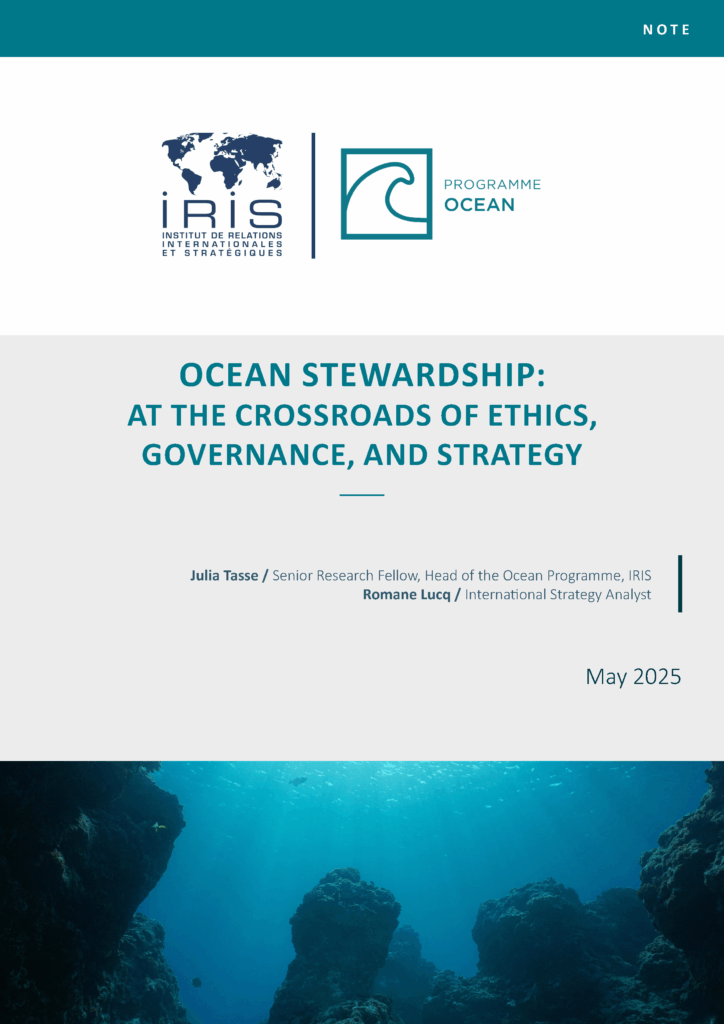Notes / Ocean
21 May 2025
Ocean Stewardship: At the Crossroads of Ethics, Governance, and Strategy

The ocean occupies a pivotal role in the world’s ecological, economic and geopolitical equilibrium. It shapes climate dynamics, underpins global trade, and constitutes a vast reservoir of natural resources. Yet, growing anthropogenic pressures are undermining its resilience, along with the stability of the systems that depend on it. Climate change is profoundly altering its physical and chemical properties, contributing to rising sea levels and ocean acidification. At the same time, the industrialisation of fisheries and the expansion of offshore operational capacities —particularly in areas beyond national jurisdiction— are accelerating the exploitation of marine resources.
In the face of these challenges, ocean governance remains challenged, torn between the prerogatives of national sovereignty and the weaknesses of international frameworks, which remain sectoral and fragmented. The law of the sea struggles to provide effective oversight of maritime spaces beyond national jurisdictions. Ongoing negotiations on the governance of the high seas illustrate the difficulty of achieving institutional coherence, as well as the complex interplay between states, international organisations and private actors in the formulation of effective and coherent standards.
It is against this backdrop that the concept of ocean stewardship has emerged. Yet the term is far from univocal: scientists interpret it as an ecosystem-based framework; international institutions promote it as a guiding principle for sustainable management, while maritime industries mobilise it as part of their corporate social responsibility strategies. This diversity of interpretation is not without consequence, raising questions about the coherence of these approaches – a coherence that is essential if the concept is to serve as an effective lever for action. Ocean stewardship currently oscillates between a scientific framework for understanding ecosystem dynamics, a normative compass, and a voluntary regulatory tool. Despite its growing use, it remains a fluid concept, leaving it vulnerable to opportunistic appropriation, thereby undermining its potential impact.
This note therefore aims to clarify the different understandings of the term, identify areas of convergence and divergence among key actors, and propose an operational definition that could elevate stewardship from rhetorical discourse to a functional instrument of maritime governance.


